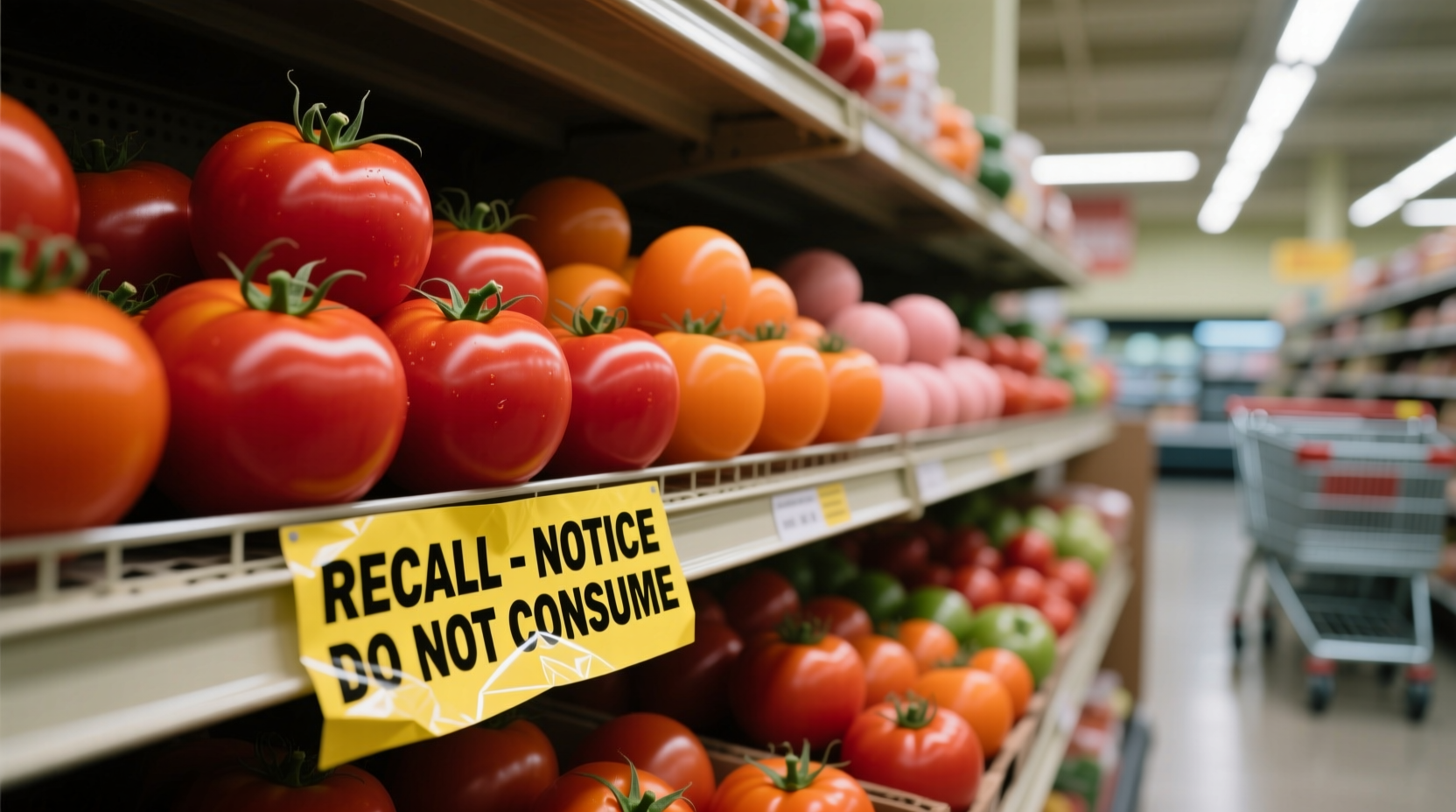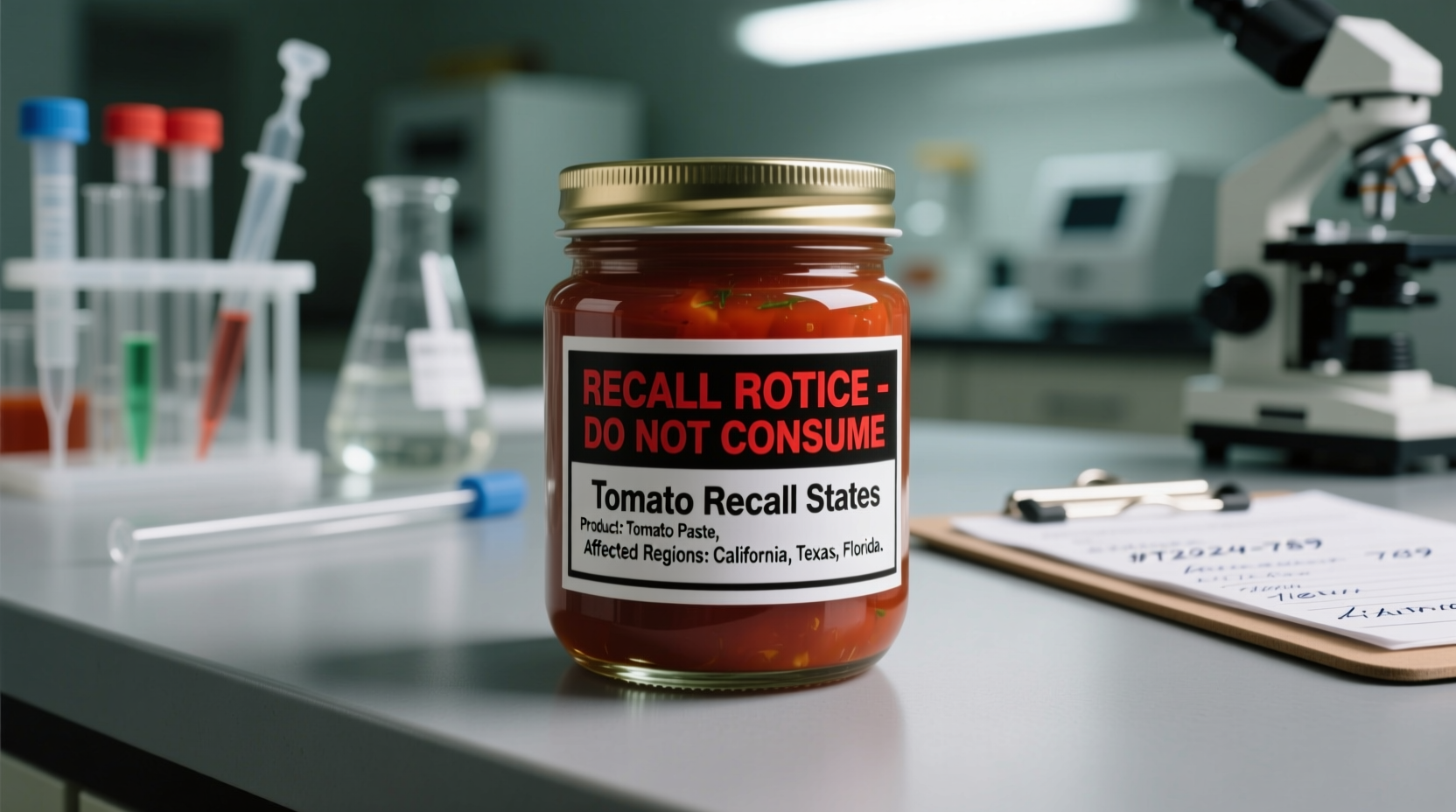As of October 26, 2024, the FDA has issued a tomato recall affecting 17 states due to potential salmonella contamination. Affected states include California, Texas, Florida, New York, Illinois, Pennsylvania, Ohio, Michigan, Georgia, North Carolina, Virginia, Maryland, New Jersey, Arizona, Washington, Colorado, and Massachusetts. Consumers should check for specific product codes on Roma, on-the-vine, and grape tomatoes distributed between October 1-20, 2024.
Food safety alerts move fast, and knowing whether your state is affected by the current tomato recall could prevent serious illness. If you've purchased fresh tomatoes in the past three weeks, this guide provides critical information you need right now. We've compiled the most current data from official sources to help you determine if your region is impacted and what immediate steps to take.
Identify If You Have Recalled Tomato Products
When a food recall happens, time is of the essence. The current tomato recall involves specific lots of Roma, on-the-vine, and grape tomatoes shipped to grocery stores and restaurants across multiple states. Here's how to verify if your products are affected:
- Check for these specific product codes: RTM20241005, OTV20241012, GTP20241018
- Look for "Best By" dates between October 5-25, 2024
- Verify packaging shows distribution from Sun Valley Produce (California)
- Inspect for the FDA recall notice sticker on bulk display containers
If your tomatoes match any of these identifiers, do not consume them. The recall was initiated after routine testing revealed potential salmonella contamination, which can cause serious and sometimes fatal infections in young children, elderly persons, and those with weakened immune systems.
| Affected Products | Safe Products | Uncertain Status |
|---|---|---|
| Roma tomatoes with code RTM20241005 | Organic Roma tomatoes | Canned tomato products |
| On-the-vine tomatoes with code OTV20241012 | Vine-ripened tomatoes from local farmers markets | Cherry tomatoes (check individual labels) |
| Grape tomatoes with code GTP20241018 | Canned diced tomatoes | Pre-cut tomato products (verify packaging) |
Recall Timeline: How This Situation Developed
Understanding the progression of this recall helps assess its seriousness and scope. Here's the verified timeline from official FDA communications:
- October 3, 2024: Initial positive salmonella test from routine FDA sampling at Sun Valley Produce facility
- October 8, 2024: Internal investigation launched by manufacturer after customer complaints
- October 15, 2024: Voluntary recall initiated for specific lots distributed to 17 states
- October 20, 2024: CDC reports 27 preliminary illness cases potentially linked to contaminated tomatoes
- October 23, 2024: Recall expanded to include additional distribution channels
- October 26, 2024: Current status with 17 states affected and ongoing investigation
This recall remains active with potential for expansion as the investigation continues. The FDA and CDC are working with state health departments to track additional cases and determine the full scope of distribution.

What To Do If You Have Affected Products
Taking immediate action protects your health and helps authorities track the recall's effectiveness:
- Do not consume any tomatoes matching the recalled products
- Check your refrigerator for affected items purchased in the last 3 weeks
- Discard properly by sealing in a plastic bag before throwing away
- Contact your retailer for refunds or replacements
- Report illnesses to your healthcare provider if you experience symptoms
If you've consumed potentially affected tomatoes and experience symptoms like diarrhea, fever, or abdominal cramps within 12-72 hours, contact a healthcare provider immediately. Most people recover without treatment, but severe cases may require medical attention.
Why This Recall Matters for Your State
Not all states face equal risk from this tomato recall. The affected regions were determined by distribution patterns from the California-based supplier. States with extensive distribution networks from Sun Valley Produce are at highest risk, while regions relying on local or alternative suppliers have minimal exposure.
Residents in border areas should note that some products may have crossed state lines through regional distribution centers. Even if your state isn't officially listed, check product codes if you purchased tomatoes from major national grocery chains during the affected period.
Staying Informed About Food Recalls
Food safety information evolves rapidly. To stay updated on this tomato recall and future food safety alerts:
- Sign up for FDA recall alerts at fda.gov/recalls
- Follow your state's department of agriculture food safety page
- Check grocery store websites for recall notices
- Download the FoodKeeper app for recall notifications
- Register products with manufacturers when possible
Remember that not all tomato products are affected. Canned tomatoes, locally grown produce from farmers markets, and products without the specific lot codes remain safe for consumption. The recall specifically targets certain fresh tomato varieties from one distributor during a limited timeframe.











 浙公网安备
33010002000092号
浙公网安备
33010002000092号 浙B2-20120091-4
浙B2-20120091-4